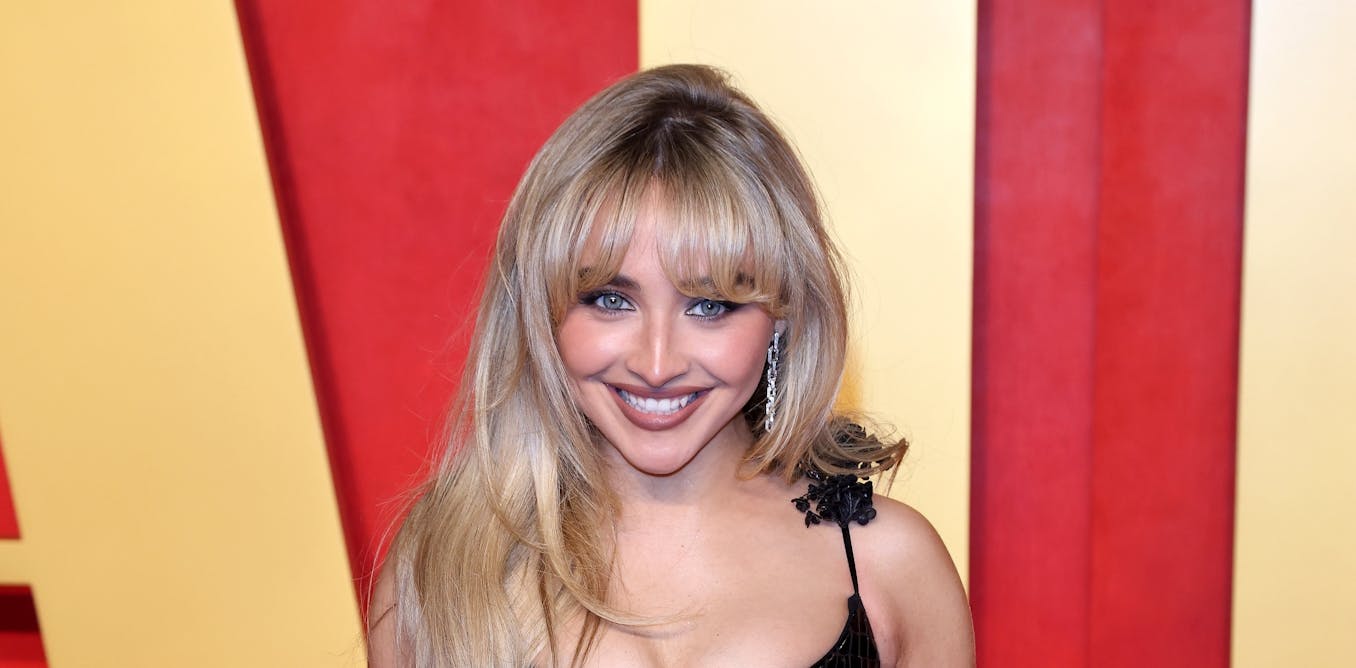Sabrina Carpenter’s “summer song” Espresso is still at the top of the charts. Only her new release Please Please Please is currently not keeping it at the top of the UK singles charts.
It’s safe to say that the new princess of pop has the music world at her feet, but a look behind the scenes suggests that she is the latest example of a female face at the top of a male-dominated industry.
Before I go any further, however, I must address the obvious. I am writing about gender discrimination in popular music as a man working in academia – a field that is also criticized for its lack of gender equality. While there is little I can do about being born a man, there is something I can do to raise awareness of the inherent gender discrimination in popular music.
Since 2000, there have been 275 UK number one hits featuring women as lead or co-lead artists, accounting for 47% of the 585 total. So far, so balanced. But when we look at how many of those 275 also had exclusively female songwriters and producers, we see a significant imbalance. Only Beautiful by Christina Aguilera (2002), Running up that Hill by Kate Bush (which returned to number one in 2022 after appearing in Stranger Things) and Strangers by Kenya Grace (2024) meet this criteria.
That’s just three songs in 24 years and less than 0.5% of the total. And even then, all of the instruments on Beautiful and Running Up were played by men and both had male music video directors, making Strangers the only track without any male involvement.
That’s 0.2% of female-led singles with no male participation in the 21st century. A remarkable statistic considering the UK singles chart has been around for 72 years and has produced almost 1,500 number one hits. On the other hand, the percentage of male-led songs with no female participation is 57%. Non-binary artists make up 1% of the total, but all of these songs are written by male songwriters and producers.
In early 2020, the University of Southern California published a study on gender inequality in music. It showed that less than three percent of producers were women and less than 13 percent were songwriters.
In terms of songwriting, Sabrina Carpenter’s Espresso and Please Please Please both fare much better – 75% of their songwriting teams were women (including Carpenter herself). But in terms of production, it’s the same old story, with Julian Bunetta for Espresso and Jack Antonoff for Please Please Please. And, not surprisingly, both are mixed, programmed, edited and mastered by men. In the case of Espresso, everything except the lead and backing vocals are handled by men.
These damning statistics are swept under the rug as the media continues to ignore the obvious. A recent GQ article praised singer Charli XCX for her authenticity on her latest album, “Brat,” describing it as, “It clearly comes from her head and not some record label moron.” However, the article studiously ignored the fact that said “morons” (in this case, Atlantic Records) hired ten male producers and twelve male songwriters to achieve the final product.
Restoring balance
Award-winning producer Lauren Deakin Davies attributes the lack of women in production roles to culturally constructed notions formed in childhood, with many girls choosing not to pursue music production when taking GCSEs and A-levels because it’s not for ‘girls’.
In fact, between 2018 and 2022, only 24% of A-level students in Music Technology were female, and the same percentage are currently studying similar courses at university.
But that could change. It is disappointing that the current UK government has rejected the recommendations of the Women and Equalities Committee’s landmark report ‘Misogyny in Music’. However, studies have shown that the proportion of female producers has increased from 3.5% in 2022 to 6.5% in 2023 and the proportion of female songwriters has increased from 14.1% to 19.5%, which Deakin Davies says could be due to lower costs and availability of studio equipment.
There have also been recent efforts to address the gender imbalance in the UK music industry, with the Youth Music NextGen Fund supporting people who may face discrimination on grounds such as gender, race, disability, location or other characteristics, and the launch of Fix The Mix’s latest annual report, which proposes a range of proactive initiatives to encourage and support more women to take on previously male-dominated roles.
These are all very welcome signs that things are heading in the right direction, but one look at the songwriting and production credits on the current UK charts shows us that there is still a very long way to go before we see female talent flourishing outside of the vocal booth. And until we see more hits written exclusively by women, the music industry will remain a male-dominated one.


/origin-imgresizer.eurosport.com/2024/06/14/image-fe61959c-3333-435d-87a2-c79df5c8f0ff-85-2560-1440.jpeg)

